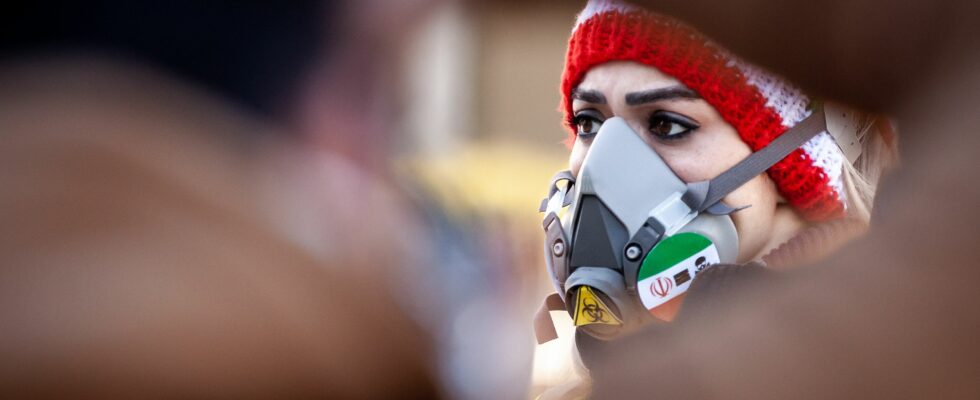Is Iran Talibanizing? Of the many criticisms that could be addressed to the Islamic Republic, that of preventing girls from accessing education did not appear there. The advent of the mullahs’ regime in Iran had the paradoxical effect of putting many young girls from traditional and religious families on the path to school, their parents being reassured by the Islamization of education. In Iran, 60% of higher education graduates are women. “Despite the misogynist laws, women remained at the center of Iranian society,” says semiologist Asal Bagheri.
But now young girls are now risking their lives by going to school, as evidenced by the hundreds of cases of gas poisoning in the heart of establishments over the past ten days. As summarized by the writer Négar Djavadi, “for more than forty years the regime has been attacking women’s bodies, this body which attracts, which arouses temptation, which is essentially sexualized, through various prohibitions, perhaps neglecting be their capacity to think, to reflect, to protest, to organize themselves, to question the world”. After six months of protest and acts of civil disobedience following the death of the young Mahsa Amini, “these attacks give the impression that it is no longer the tempting woman that the regime wants to control, but the one who s ‘opposite”.
Even if Supreme Leader Ali Khamenei finally came out of his silence to qualify these attacks as an “unforgivable crime”, it is difficult to believe that, in a country where everything is monitored, these very large-scale poisonings could have taken place without the approval at least tacit from the leaders. “The authorities must investigate the intoxications of female students. If they are deliberate acts, they should be punished with the death penalty”, assured the number one of the regime on state television. However, more than a thousand young girls were affected in about fifty establishments spread over the whole territory, without the authorities seeming to have the beginning of a track. The only arrest that has taken place so far concerns the Iranian journalist Ali Pourtabtabyi, who was the first to denounce the intoxications. It was only in the face of the growing mobilization of parents that the authorities decided to react, and still timidly.
“It’s a warning”
Religious towns like Qom have been hit in the same way as neighborhoods in Tehran: “it’s a warning for all layers of society, to encourage them not to send their daughters to school”, believes Asal Bagheri. For sociologist Azadeh Kian, there is no doubt either: “The goal is to intimidate them in order to prevent them from going to demonstrate: we attack a sample but the message is for everyone.” The researcher evokes a Talibanization of the country, in the sense that the goal is to bring young women back to the role of mother and wife. “The ultra-conservatives, including the Supreme Leader, do not appreciate their presence at the university. They consider that educating them until an advanced age leads them to marry at late ages and to give birth only to one child.”
After having killed a young woman for a badly worn veil, after having condemned to death and executing young men guilty of having demonstrated, after having fired live ammunition at children, here is now a desperate country which instills terror in the hearts of little girls, attacks their mothers and ignores their fathers. Enough to multiply the revolt of the Iranian people. “Once again we are confronted with the contradictions and lies of the Iranian authorities, unable to face the consequences of their own acts, trying to justify this wave of poisoning with increasingly fallacious arguments”, denounces the French writer -Iranian Negar Javadi.
“Talking about rumours, about equipment failure, then promising an investigation. Again, this is step by step, how the Islamic regime proceeds as soon as it is caught at fault. Inevitably, there is something something pathetic that emerges from this line of defense which, instead of clearing them, accuses them even more”. Deputy Interior Minister Majid Mirahmadi has denied any involvement of the regime and accuses the agents from abroad, namely the opponents of the diaspora: the “perpetrators of the poisoning of the girls want to put the blame on the system in order to rekindle the extinguished flame of the riots”. Whoever the culprit, this prophecy is likely to be self-fulfilling.
